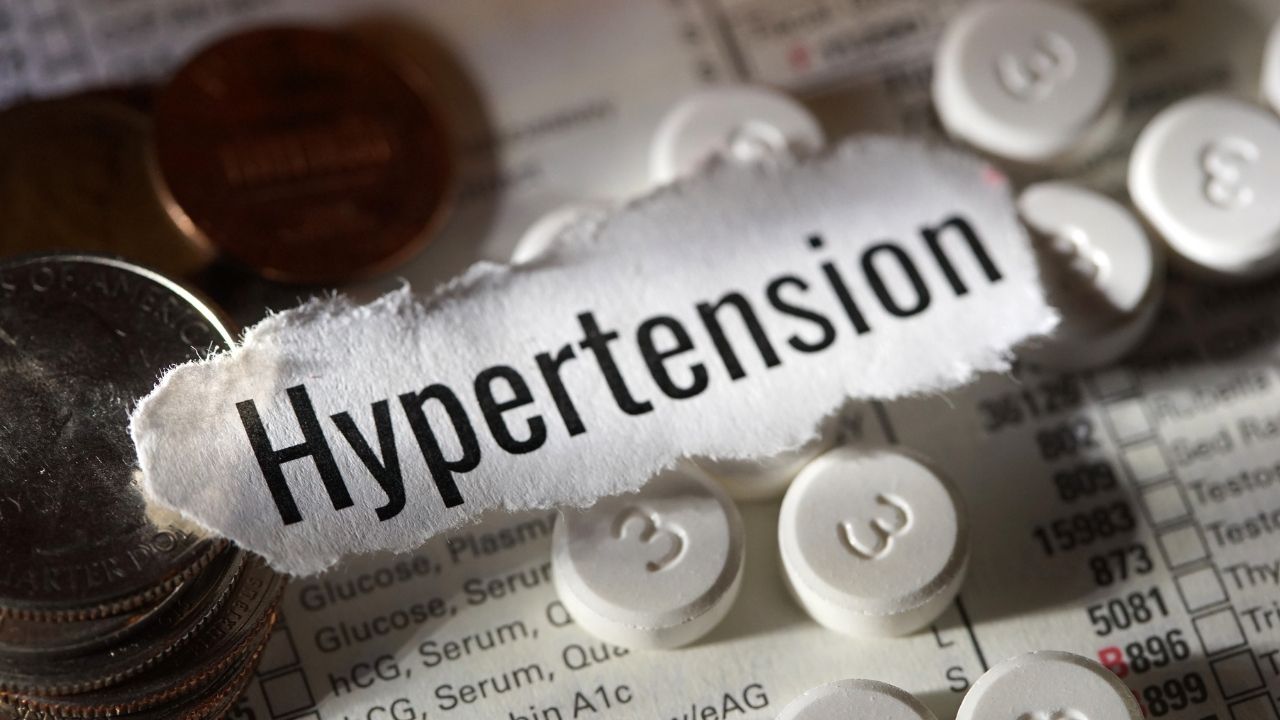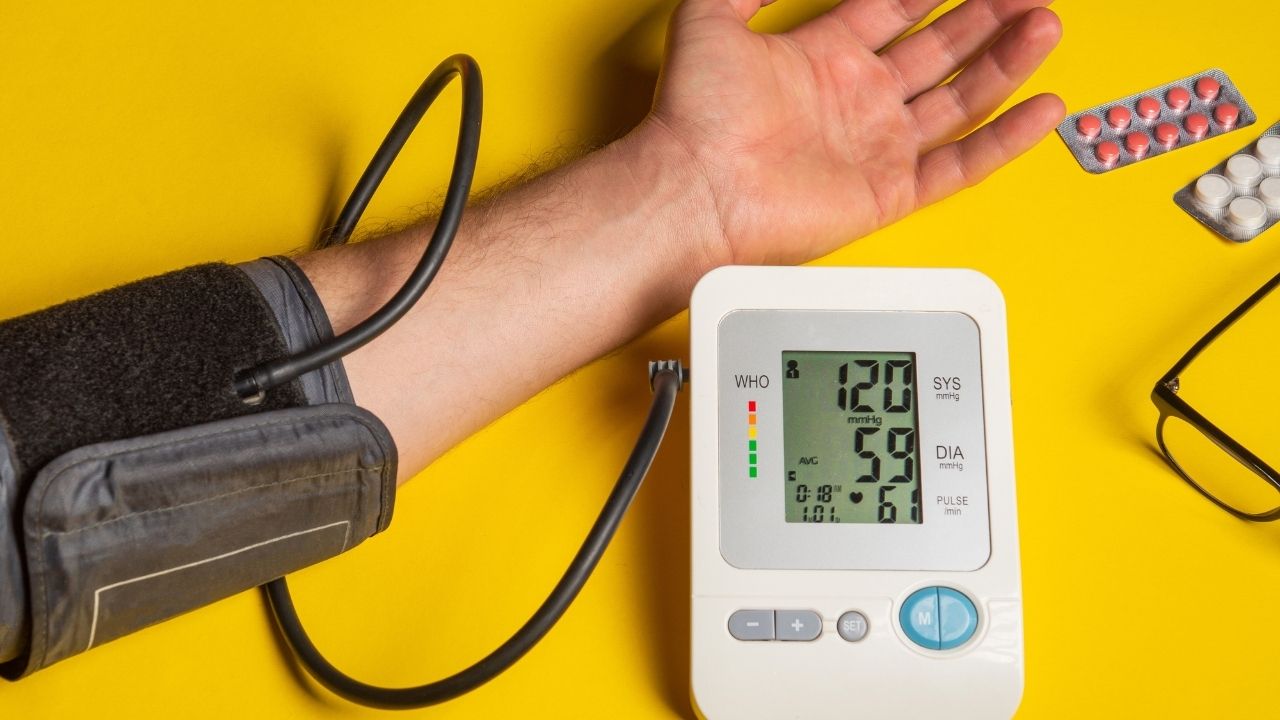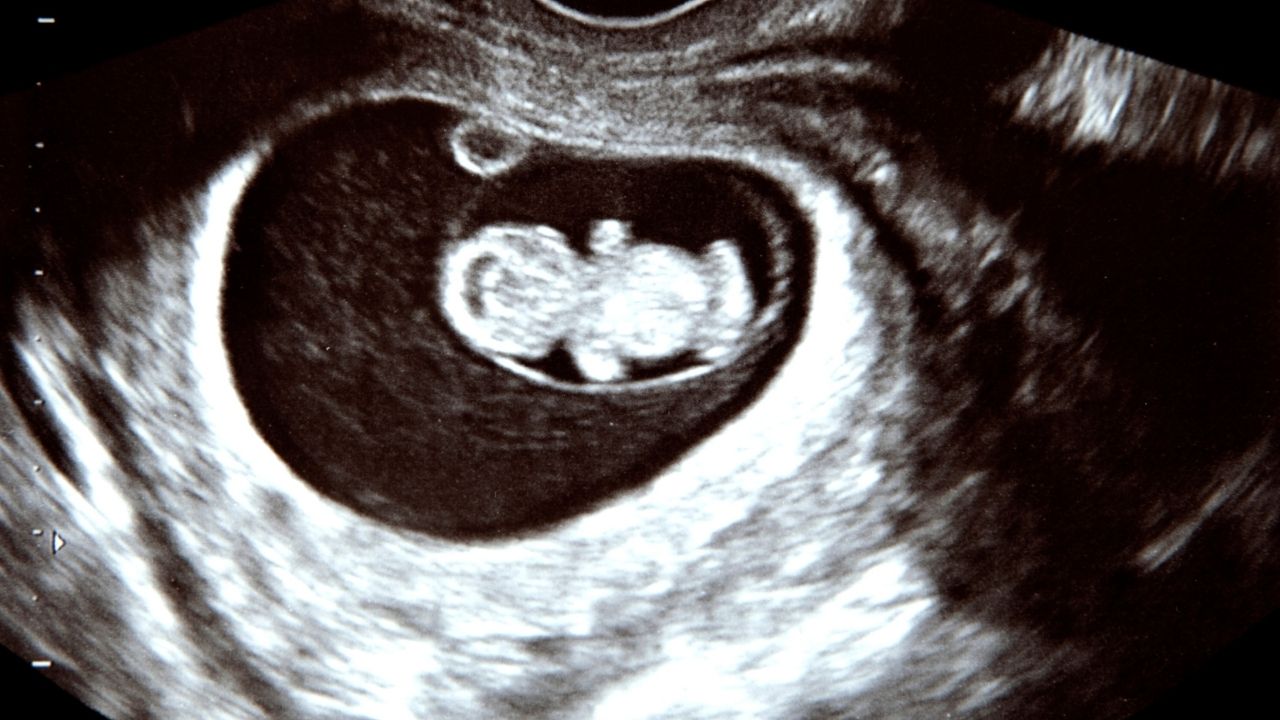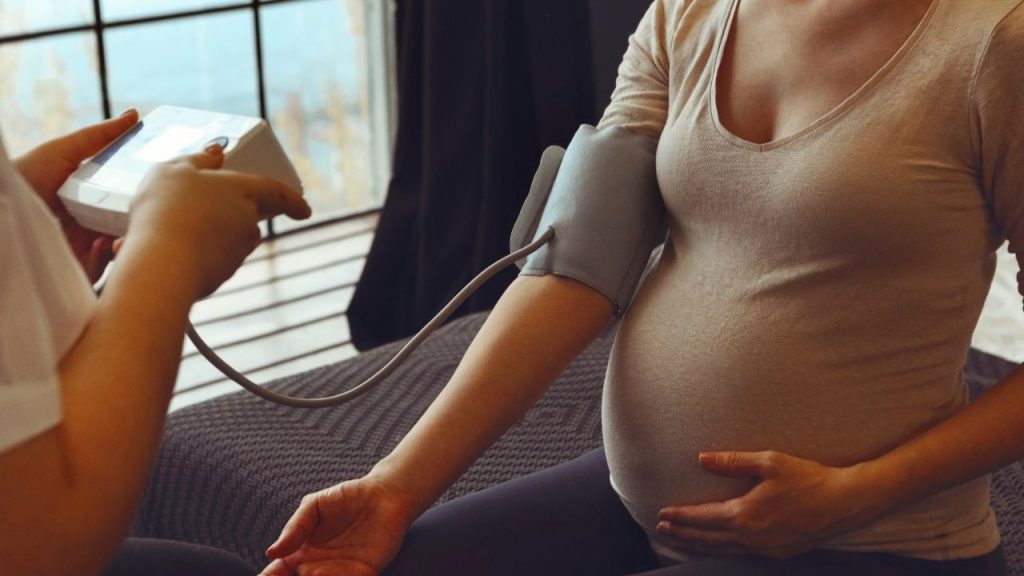Pregnancy induced hypertension ( also called pregnancy hypertension, or pre-eclamptic toxaemia). In this condition the blood pressure of a woman who is pregnant is raised above, or more than before (previous). Blood pressure is shown as two numbers.
The higher number is called systolic pressure. It shows how hard the heart pumps blood. The lower number is called diastolic pressure. It measures the pressure in the arteries when the heart is at rest between beats.
It is of great importance for both the process of pregnancy and the baby that a normal blood pressure is maintained. When a pregnant woman has high blood pressure, it can be dangerous. This can lead to complications like preeclampsia. Preeclampsia is a pregnancy disorder.
It is marked by high blood pressure and damage to organs like the kidneys and liver. Uncontrolled or inadequately treated hypertension may result in adverse fetal outcomes, including low birth weight and preterm birth.
Understanding the causes, symptoms, types, and treatments of high blood pressure is key for a healthy pregnancy and delivery.

Symptoms of Hypertension During Pregnancy
It can be difficult to tell if a woman has hypertension during pregnancy, as many women experience no symptoms at first. Hypertension is frequently only detected at the time of your prenatal check-ups when you check your blood pressure.
But if the condition advances, there may be some warning signs:
- Headache that is severe or persistent and does not readily respond to common pain-killers.
- Problems with vision, such as blurriness or double vision
- Swelling or edema, particularly on the hands, face, or around the eyes.
- Symptoms of excess fluid in the body, which results in rapid weight gain.
- Tenderness in the upper right side of the abdomen (liver area).
- Nausea and vomiting, progressively worsening in late stages
- Difficulty in breathing and pain in the chest
If the condition develops into preeclampsia, it can lead to more serious symptoms. These include high liver enzymes and low platelet count. These issues can be detected through blood tests. These are the symptoms that need to be addressed in time to avoid complications to mother and baby.
Symptoms can be vague or absent, thus survelliance and attention to any even minor change in health are important. Timely intervention can only happen early in pregnancy. This is when the disease is in its early stages. Regular prenatal visits are important for this.

Causes of Hypertension During Pregnancy
The etiology of abnormal blood pressure during pregnancy is complex, with contributions from genetics, physiology, and lifestyle factors. Although in some instances the etiology is unknown, there are many predisposing factors for the development of this disease. Some of them include:
Family history: Women who have a personal or family history of high blood pressure or preeclampsia. Genetic predispositions influence how the body manages blood pressure and reacts to pregnancy.
Previous pregnancy complications: A prior history of hypertension or preeclampsia increases the likelihood of recurrence.
First-time pregnancy (primigravida): The risk is higher in a woman’s first pregnancy, perhaps because the body is adjusting for the first time to the metabolic changes of pregnancy.
Multiple pregnancies (twins, triplets, etc.): Carrying more than one baby increases the load on the cardiovascular system , which could lead to high blood pressure.
Age: Women older than 35 are more likely to develop high blood pressure while pregnant.
Obesity and poor lifestyle habits: Women with higher body mass index and less physical activity are more likely to develop hypertension.
Medical illness: illnesses like diabetes, kidney disease or autoimmune diseases (like lupus) can make women more susceptible to hypertension.
Chronic hypertension high blood pressure: Women with preexisting high blood pressure prior to pregnancy are defined as having chronic hypertension.
Other things like stress, poor nutrition and even environmental factors could play a role. The placenta is also involved, poor placenta development can result in vascular problems that raise blood pressure.

Types of Hypertension in Pregnancy
Being informed about the types of hypertension (high blood pressure) during pregnancy allows health care providers to differentiate, track and treat the condition in the best possible way. Here’s a guide to some of the main types:
1. Chronic Hypertension
This is high blood pressure that occurs before pregnancy or is identified before the 20th week of pregnancy. Women with the condition must be closely observed, because they are more likely to have preeclampsia or more complications.
2. Gestational Hypertension
This kind occurs after 20 weeks of pregnancy in women who previously had normal blood pressure. A pregnant woman is diagnosed with it if she has high blood pressure but doesn’t have any protein in her urine. Gestational hypertension can develop into preeclampsia on some occasions.
3. Preeclampsia
Preeclampsia is a high-risk condition that causes high blood pressure along with another problem, such as damage to another part of the body, most often the kidneys (proteinuria). It is linked to high blood pressure, decreased blood flow to the placenta, and can also lead to liver problems (high liver enzymes) and low platelets. Women can also develop swelling, headaches and visual changes.
4. Eclampsia
Eclampsia is a complicating factor of preeclampsia that includes seizures. It is a mortal condition, which necessitates immediate fetus delivery and intensive care to prevent fetus as well as mother mortality.
5. Chronic Hypertension with Superimposed Preeclampsia
Preeclampsia symptoms may emerge or worsen in women with chronic hypertension after 20 weeks. This is a more dangerous situation for both the mother and the baby.

Classification of Hypertension in Pregnancy
| Category | Systolic (mm Hg) | Diastolic (mm Hg) |
| Normal | < 120 | < 80 |
| Elevated | 120–129 | < 80 |
| Mild Hypertension | 140–149 | 90–99 |
| Moderate Hypertension | 150–159 | 100–109 |
| Severe Hypertension | ≥160 | ≥110 |
Treating severe hypertension is important. It helps lower the risk of maternal stroke and other serious issues. These issues include placental abruption and fetal death.

How Does Hypertension Affect the Baby in Pregnancy
Knowing the effect of hypertension on the fetus in pregnancy is important in learning the significance of early treatment. It hinders the placenta’s ability to provide the baby with oxygen and nutrients by cutting off blood flow. Here are some of the negative impacts that baby can suffer from:
- Declines in placental blood flow can result in low birth weight, when a baby is smaller than expected for its gestational age.
- Babies born to mothers with high blood pressure have higher rates of preterm delivery. This can happen either naturally or because doctors decide to deliver early due to the mother’s health issues.
- There is a higher risk of placental abruption. This happens when the placenta separates from the uterine wall before birth. It can cause bleeding and reduce the baby’s oxygen supply. This situation may lead to an emergency delivery.
- Untreated, severe hypertension can cause stillbirth.
- There may be long-term risks of metabolic and cardiovascular disease among babies born to mothers with hypertensive disorders.

Is Hypertension High Risk Pregnancy?
The question about whether hypertension poses a high risk in pregnancy receives a definitive yes. Pregnancies complicated by hypertension are classified as high risk due to the elevated chance of maternal and fetal complications. Risks Include:
- Hypertensive women need increased prenatal visit and blood pressure monitoring to achieve control.
- They also get extra tests. These include blood tests for liver enzymes and low platelet counts. They have ultrasounds to check the size and birth weight of the fetus.
- Early delivery is usually indicated if the proneness of condition exacerbates or there are signs of fetal distress.
- Mothers also face a higher risk of severe complications, such as stroke, heart failure, kidney damage and placental abruption.
General risk factors can be greatly reduced with good management. However, these pregnancies often need a team approach. This team may include obstetricians, maternal-fetal medicine specialists, and sometimes neonatologists.

How to Control Hypertension During Pregnancy
To efficiently handle hypertension during pregnancy, there is a mix of lifestyle changes, medications and routine monitoring.
1. Lifestyle Modifications
It is important to keep your weight in check before getting pregnant, and during pregnancy.
Safe exercise helps to lower blood pressure and improve heart health. Experts often suggest brisk walking, swimming, and prenatal yoga.
Eating a variety of plant-based foods and lean protein sources is helpful for general health. Decreasing salt intake is a helpful means of preventing fluid retention.
It is also important to not use tobacco, alcohol and illegal drugs.
Meditative stress reduction can have effect on blood pressure control.
2. Medication Management
Lifestyle modifications can sometimes be enough. Doctors prescribe medications that control high blood pressure during pregnancy. However, a few of the most commonly prescribed blood pressure medications are off limits because they can damage the fetus.
Safe alternatives are methyldopa, labetalol, and nifedipine. The selection of medication is based on the patient’s diagnosis and severity.
3. Regular Monitoring
Be sure to monitor your blood pressure regularly at home and at prenatal appointments. Recording blood pressure readings can aid doctors in titrating treatment.
Weight, urine protein, and symptoms surveillance allows detection of deterioration at an early stage.
4. Postpartum Follow-Up
Patients with gestational hypertension or chronic hypertension need follow-up after giving birth. They may still have high blood pressure or worsen after delivery.
Additional Important Considerations
- History of hypertension, history of previous complications in pregnancy should be reported to healthcare workers earlier by women.
- Symptoms that may let you know things are progressing towards preeclampsia are headaches, visual changes and upper abdominal pain.
- Careful planning for delivery is important. Women with high blood pressure may need early induction or a cesarean section. This decision depends on the health of both the mother and the baby.
- Good hydration, low salt intake, and careful supervision by a doctor lead to better results.
- Pregnant women can reduce stress associated with high-risk pregnancies through emotional support and education.
Summary
In summary, hypertension in pregnancy is an important issue. It is a serious condition that can have major effects if not treated.
Pregnancy-induced hypertension can happen in different ways. It can be chronic hypertension, gestational hypertension, or preeclampsia with proteinuria. Each type has its own management options.
Early diagnosis is key to success. You should monitor your blood pressure regularly.
It is important to know the causes of hypertension during pregnancy. You should also identify the symptoms and habits related to hypertension in pregnancy. Catching these issues early can prevent them from becoming major problems.
Many women with high blood pressure can have successful pregnancies. They can achieve this by closely monitoring their health. Making some lifestyle changes is also important.
Additionally, using medication when necessary can help. They can deliver healthy babies who grow well and have normal birth weights. Seeking medical advice early will help make sure the pregnant person and baby are kept safe within a pregnancy continuum and beyond.”





